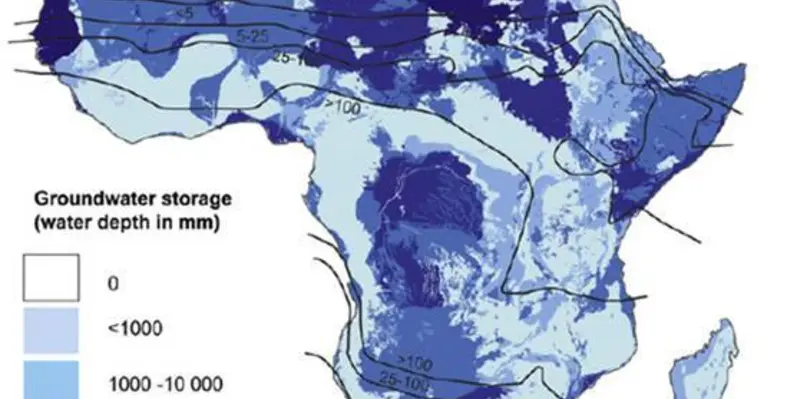While groundwater maps of the African continent created much optimism when they were published recently, experts have warned that accessing water from such sources may prove difficult due to political and technical factors
Vast groundwater resources were revealed in Africa by the first continent-wide quantitative maps that were published in April in Environmental Research Letters.
The maps are based on an extensive review of available maps, publications and data and reveal that the African continent has a total underground water storage capacity of 0.66 million cubic kilometres. This is over 20 times the freshwater storage capacity of lakes on the continent. The largest aquifers are in northern Africa in Algeria, Chad, Egypt, Libya and Sudan.
The researchers behind the maps, who are from the British Geological Survey and University College London, warned that high yielding boreholes will not be found using a haphazard approach and said that a more careful and exploratory approach that takes into account local groundwater conditions would be needed; something that they hoped their study would encourage.
These substantial groundwater reserves have led to speculation that boreholes can be drilled and hand pumps fitted to tap to alleviate the lack of water in many African countries. Experts have warned that this may not be as simple as it seems.
"The study makes it clear that these groundwater [aquifers] are far from population centres," Mohamed Gad, professor of hydrology at the Desert Research Centre in Egypt, was quoted as saying by SciDev.Net. He added that many of these are also around 100 to 250 m under ground making them very expensive to develop.
"North African countries need to resume negotiations about the management of the shared groundwater, as most of the aquifers in this region are crossing borders between more than two countries," Gad was quoted as saying. “Countries like Algeria, Libya and Tunisia already have an agreement for the preservation of the groundwater resources, but countries like Egypt, Libya and Sudan still have challenges managing shares.”
Libya harnessed its groundwater reserves but this has reduced groundwater levels in Egypt’s west desert. A cross-national collaborative approach is therefore required.
The lead author of the study, Dr Alan MacDonald, echoed this sentiment, saying, “High yielding boreholes should not be developed without a thorough understanding of the local groundwater conditions.”














